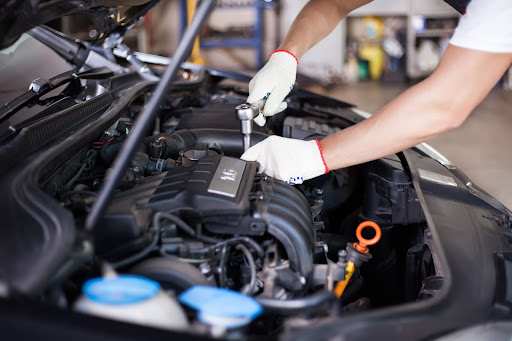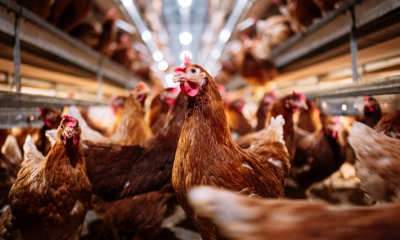Business
South Africa’s Small Auto Repair Businesses Struggle Amid Growing Industry Challenges

Small, medium, and micro enterprises (SMMEs) are the backbone of South Africa’s motor body repair (MBR) sector, contributing to economic growth, job creation, and industry innovation. These businesses bring fresh approaches, adapt to global technological advancements, and play a crucial role in local production and industry sustainability.
According to the latest Motor Industry Bargaining Council (MIBCO) statistics, of the 2,030 registered MBR employers in South Africa:
-
74.29% employ fewer than ten people.
-
60.79% operate with just one to five employees.
These numbers highlight the sector’s reliance on small businesses. However, despite their significance, small auto repair businesses are struggling to survive due to systemic challenges.
Growing Challenges Facing Small Auto Repair Businesses
Juan Hanekom, national director of the South African Motor Body Repairers’ Association (SAMBRA), a division of the Retail Motor Industry Organisation (RMI), warns that small businesses are being squeezed out by unfair industry practices.
Delayed Payments and Unfair Rebate Clauses
One of the biggest obstacles facing MBR SMMEs is the issue of delayed payments and restrictive rebate conditions imposed by larger industry players. Cash flow is essential for small businesses, and long payment cycles make it difficult to sustain operations.
“The sustainability of the MBR sector depends on fair business practices. Small enterprises cannot continue to bear the financial strain of delayed payments or prejudicial rebate clauses,” Hanekom stresses.
Increasing Compliance Costs
With vehicle technology becoming more complex, compliance costs are rising. Small businesses must invest in advanced training, equipment, and new industry standards, all while dealing with shrinking profit margins.
Lack of Ethical Procurement Practices
Hanekom emphasizes that the industry needs to enforce ethical procurement policies to protect smaller businesses from exploitative practices that threaten their survival.
The Impact on Employment and South Africa’s Economy
The struggles of small auto repair businesses are not just an industry issue – they have broader economic consequences. While South Africa’s unemployment rate dropped slightly to 31.9% in Q4 2024 from 32.1% in Q3 2024, youth unemployment remains alarmingly high at 44.6%.
Since many small auto repair businesses employ skilled artisans and young professionals, their decline contributes to job losses in an already strained labor market.
“Ensuring the survival and growth of small businesses in the MBR sector is directly linked to job creation. Industry policies must support small businesses to help drive employment opportunities,” says Hanekom.
The Call for Industry Reform
SAMBRA is calling for the industry to:
-
Enforce ethical procurement policies.
-
Implement fair and efficient payment structures.
-
Reduce restrictive rebate clauses that disadvantage small businesses.
-
Provide better support for compliance costs.
Without urgent intervention, the South African auto repair industry could see a decline in qualified artisans and increased business closures, further exacerbating unemployment.
Small auto repair businesses play a vital role in South Africa’s economy and automotive industry. However, mounting financial pressures and unfair industry practices threaten their sustainability. As industry leaders push for reforms, it remains to be seen whether meaningful changes will be implemented to protect these essential businesses.
{Source ZAWYA}
Follow Joburg ETC on Facebook, Twitter , TikTok and Instagram
For more News in Johannesburg, visit joburgetc.com


























